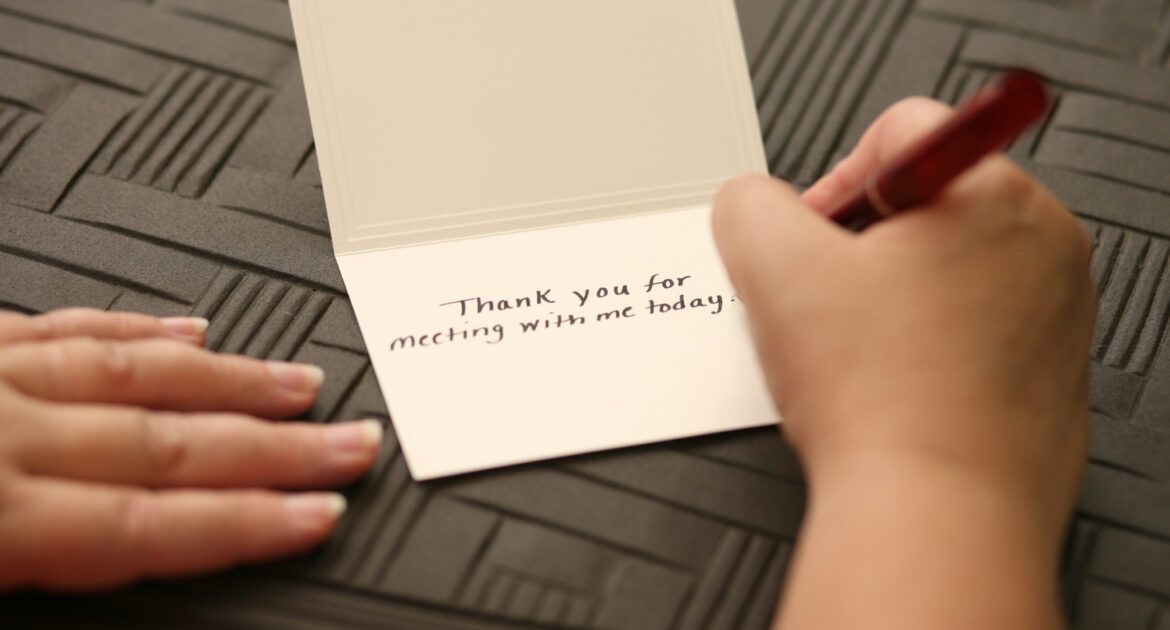Have you considered sending a thank you note after an academic interview? If you sent one, did you feel awkward, hopeful or optimistic once you have written it?
The idea of sending a thank you note after an interview is nothing new. Many of us, however, consider it solely a gesture to win the interviewer’s favour. According to Peter Steyger, Professor of Otolaryngology at Oregon Health & Science University:
“Sending a thank you note is a good courtesy to have. In practice… it does not and should not sway the interviewer. However, it helps to reinforce an interviewer’s initial opinion of the applicant. It can also help to refresh the interviewer’s memory whilst alleviating any worries that they may have about fitting into the department.”
Professor Steyer affirmed that thank you notes can be useful. They can ease doubts about the applicant. They can be a polite gesture. And they can affirm the interviewer’s opinion of the candidate.
Who to send it to?
Before you find yourself in front of an academic interview panel, you should already know who your interviewers are. This will help you to prepare your answers by tailoring them to their individual areas of interest. Knowing who is on the panel will help you to prepare your thank you note prior to the interview. Be sure to send a personalised note to each interviewer and do include the HR representative (if they are present at the interview).
How to send it?
Ideally you should send off your thank you notes on the day of the interview. Some candidates prefer to email their notes after the initial sessions and others like to send a handwritten note after the final interview. Consider the type of organisation you are applying to. Is it a well-established and formal organisation or is it a young, entrepreneurial and informal organisation? The more formal the organisation, the more you could be expected to send thank you notes after the interview(s).
What content to include?
Keep it clear, concise and bespoke. Aim for less than a page. Show appreciation of the interviewers’ time and paraphrase the discussion. You could reiterate your existing and proposed research to refresh their memory. You could relate your research to their specialties to show the mutual benefit for both applicant and interviewer or the department. If you are applying for a teaching position, reiterate your skills and experience, and include any relevant achievements.
Professor Steyger reminded me to be sincere and genuine. With the right approach, thank you notes can be received in the best possible light.
For more interview tips see:
- Video Interviews – How to Prepare
- Succeeding in Academic Interviews
- Top Ten Tips for Preparing for Academic Interviews
- Top 5 Academic Interview Answers


Leave a Reply